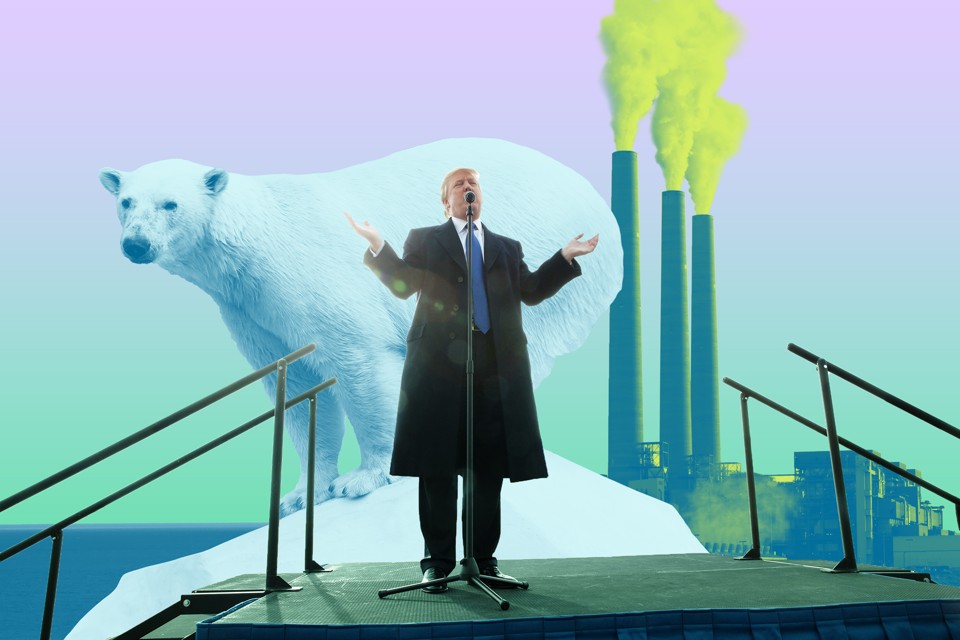In The Atlantic, Robinson Meyer makes the case for Donald Trump as the first demagogue of the Anthropocene. What does he mean by this? He means that the conditions generated by climate change—increased migration, competition over dwindling natural resources, widespread immiseration, etc.—exacerbate the social tensions that demagogues like Trump seek to exploit on their road to power. And if Trump is the first demagogue of the Anthropocene, Meyer points out that he most certainly won’t be the last. Read an excerpt from the piece below or the full text here.
Spend enough time with some of the worst-case climate scenarios, and you may start to assume, as I did, that a major demagogue would contest the presidency in the next century. I figured that the catastrophic consequences of planetary warming would all but ensure the necessary conditions for such a leader, and I imagined their support coming from a movement motivated by ethnonationalism, economic stagnation, and hatred of immigrants and refugees. I pictured, in other words, something not so far from Trump 2016.
I just assumed it wouldn’t pop up until 2040.
This kind of worry is speculative—very speculative—but it is not ungrounded. A large body of scholarship suggests that climate change could exert grave effects on international politics this century. Planet-wide warming will dry out regions of the world already riven with ethnic and political strife, all the while impoverishing and destabilizing the Western powers that backstop global order. A recent study even argues that climate-triggered environmental shocks will exacerbate the very divisions that authoritarians have historically sought to exploit.
So to now watch a demagogue contest the presidency, running a campaign that appeals to racism and xenophobia, has felt less like the sudden apparition of an unfathomable nightmare and more like the early realization of a seasonal forecast. You can hear the long-predicted gusts, the rain pounding on the roof and the groaning thunder. It’s all just happening four decades earlier than the weather person said.
Image via The Atlantic.
